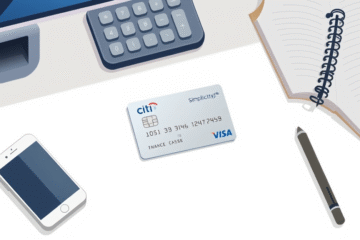Impulsive spending has become a significant challenge in today’s consumer-driven world.
Understanding how to manage our financial decisions and control our spending habits is crucial for maintaining long-term financial stability.
In this comprehensive guide, we’ll explore effective strategies and practical techniques to help you overcome impulsive buying behaviors and develop healthier financial habits.
From identifying triggers to implementing smart budgeting practices, we’ll provide you with the tools needed to take control of your spending.
Understanding Impulsive Spending
Impulsive spending is often driven by psychological factors that overpower rational decision-making. Advertisers utilize emotional appeals to stimulate instant gratification. Social influences, such as peer pressure and the fear of missing out, exacerbate the urge to spend.
Consumers frequently give in to the allure of acquiring new items due to stress or boredom, finding a temporary emotional release, as noted here. Underlying emotional issues, such as anxiety or depression, may also heighten impulsive tendencies.
This is because shopping can provide a fleeting sense of control or excitement. Moreover, social environments, including crowded malls or bustling marketplaces, can intensify impulsive buying. Advertising tactics skilfully target these triggers to promote spontaneous purchases.
- Stress and anxiety
- Peer pressure
- Instant gratification
- Emotional states
- Desire for novelty
Recognizing these influences is crucial in addressing impulsive spending behavior effectively and fostering healthier financial habits. By understanding them, consumers can better manage their spending and maintain control over their finances.
Identifying Your Spending Triggers
Reflect on your daily routines to recognize personal spending triggers that might disrupt your financial stability.
Identify moments when emotional states lead to impulsive spending, often stemming from stress or boredom.
Recognizing these influences offers insight into unconscious behaviors.
Environmental factors, like particular stores or sales, can act as triggers.
Write down spending situations to see patterns.
It’s vital to be aware of such influences, as they impact long-term goals.
Understand your financial life better by categorizing these triggers.
This link explains identifying patterns.
Analyzing what situations lead to purchases reveals which type impacts you most, whether emotional or environmental.
| Trigger Type | Example | Personal Experience |
|---|---|---|
| Emotional | Stress buying | Purchased shoes after a hectic day |
| Environmental | Browsing during sales | Bought unnecessary items during clearance |
Pay attention, and note specifics to avoid them and prioritize financial health.
This method not only builds understanding of individual triggers, but also empowers better spending choices by enabling control over decisions, safeguarding your budget from impulsive temptations.
Maintain awareness through detailed records of income and expenses, identifying all factors influencing your spending urges.
Setting a Realistic Budget
Budgeting effectively is essential to achieving financial stability and reaching your personal financial goals. Understanding the fundamental principles of budgeting can empower you to manage your finances better.
Here are some key steps to create a budget that works for you:
- Calculate your income: Determine all sources of income, including salaries, bonuses, and other regular inflows.
- List your expenses: Identify and categorize all monthly expenses into needs and wants to ensure accuracy.
- Set your spending limit: Prioritize essential expenses while ensuring your budget does not exceed your income.
- Adjust as needed: Revise your budget based on monthly spending patterns for realistic adjustments.
- Track regularly: Consistently review your budget to ensure you’re adhering to your financial goals.
You can download a budget template to simplify this process.
Remember, a budget should be flexible to changing needs but disciplined enough to maintain financial health. Stick to the plan while being open to necessary changes, and regularly track your progress for continued success.
Planning Your Expenditures
Understanding the significance of planning expenditures is crucial for maintaining financial health. It allows individuals to foresee potential pitfalls and make informed decisions.
Without proper expenditure planning, you might encounter unmanageable debts and undue financial stress. Here’s how to schedule purchases effectively.
- Create a detailed spending plan to categorize expenses: needs, wants, and savings. A well-organized plan clarifies where your money goes each month.
- Adopt the 50-30-20 rule using resources like the UNFCU budgeting basics to allocate income wisely.
- Track expenditures regularly to adjust the plan when necessary. Instituting regular check-ins will foster better spending habits.
- Set financial goals as motivation, utilizing tools like the NerdWallet’s budgeting guide.
- Consider unplanned expenses. Budgeting for occasional costs ensures you’re not caught off-guard.
By implementing these strategies, the pathway to financial stability becomes attainable. Remember, the key is consistency in monitoring and adjusting your budgeting practices.
Maintaining Financial Awareness
Regular monitoring of one’s financial status is crucial for maintaining financial health and making informed decisions. Financial tools and apps are designed to assist users in tracking spending and managing their money effectively.
Using such tools provides insight into financial habits, allowing individuals to see where they may need to adjust their spending. Mint is a popular choice because it offers features to track expenses and create budgets.
Another tool is Quicken, known for its detailed reports and robust budgeting options.
Monitoring your finances regularly can help you identify leaks in your budget and facilitate adjustments as needed.
Expensify also helps by simplifying expense reports and providing options for receipt scanning.
Moreover, tools like Expensify integrate with popular financial apps, making it easier to manage different financial accounts. Maintaining awareness not only leads to healthier finances but also encourages goal setting.
Ultimately, leveraging these powerful financial tools can guide you to a more stable financial future.
By focusing on these important aspects, individuals can avoid pitfalls associated with impulsive spending and secure their financial well-being.
Techniques for Conscious Spending
One effective method for conscious spending is applying the ’24-hour rule’. Before making non-essential purchases, pause for a day to assess necessity.
This allows for reflection on true need versus impulse. Additionally, tracking expenses meticulously fosters financial awareness. Apps like Best Egg offer tools to categorize and monitor expenditures effectively.
Practicing mindful spending involves recognizing spending triggers, like emotional responses driving unnecessary shopping. Awareness of these habits can prevent impulse buys.
Further, prioritizing needs over wants ensures funds align with significant financial goals, safeguarding against wasteful spending. For instance, focusing on essential purchases leads to improved savings.
Incorporating a spending plan offers structure. Resources such as the Conscious Spending Basics Guide advocate allocating funds wisely among fixed costs, investments, and savings.
Understanding personal values aids in directing spending toward meaningful activities, establishing a productive relationship with finances.
Limiting Access to Credit
Easy access to credit can lead to overspending, financial instability, and mounting debt. The temptation to use credit cards for impulse purchases is a significant risk. With each swipe, it becomes easier to lose track of spending limits and accumulate financial commitments that exceed one’s capacity to repay. Consequently, maintaining a low utilization rate of your credit limit is critical.
First, set clear spending limits by listing essential expenses and cutting down on non-essential purchases. A well-planned budget helps you prioritize necessary payments and avoid unnecessary debt. Additionally, create a habit of paying with cash or a debit card wherever possible. This practice limits your purchases to the money you actually have, preventing overspending due to available credit lines.
Another step is to monitor your credit utilization ratio regularly, aiming to keep it below 30%. Finally, consider reducing the credit limits on your cards. Many banks offer options to manage and decrease your limit directly through your online banking platform.
Fostering Healthier Financial Habits
Maintaining control over financial habits requires proactive strategies to minimize impulsive spending and increase financial stability. Developing good financial habits begins with setting a budget that aligns with your income and expenses, helping prevent overspending.
Regularly tracking your expenses allows for a clear understanding of income flow, aiding in identifying unnecessary expenditures. Prioritize essential expenses to ensure money is allocated to necessary areas before indulging in wants.
Moreover, cultivating a practice of saving consistently not only builds an emergency fund but also reinforces financial security. Access to credit should be limited, as reliance on debt can detrimentally impact personal finances.
Enhancing one’s financial discipline involves distinguishing needs from wants, encouraging thoughtful consumption. Practicing conscious spending helps consciously control financial decisions, supporting long-term economic health.
Actionable Advice:
- Set automatic transfers to savings.
- Create a shopping list and stick to it.
- Review your budget monthly.
- Avoid credit card reliance; use cash where possible.
- Limit subscription services to essentials.
Implement these practical tips daily to cultivate positive financial habits.
By implementing these proven strategies and maintaining awareness of your spending habits, you can successfully overcome impulsive buying tendencies.
Remember that developing healthy financial habits is a journey that requires commitment and patience.



0 Comments